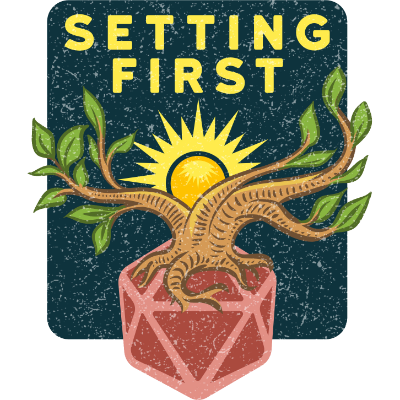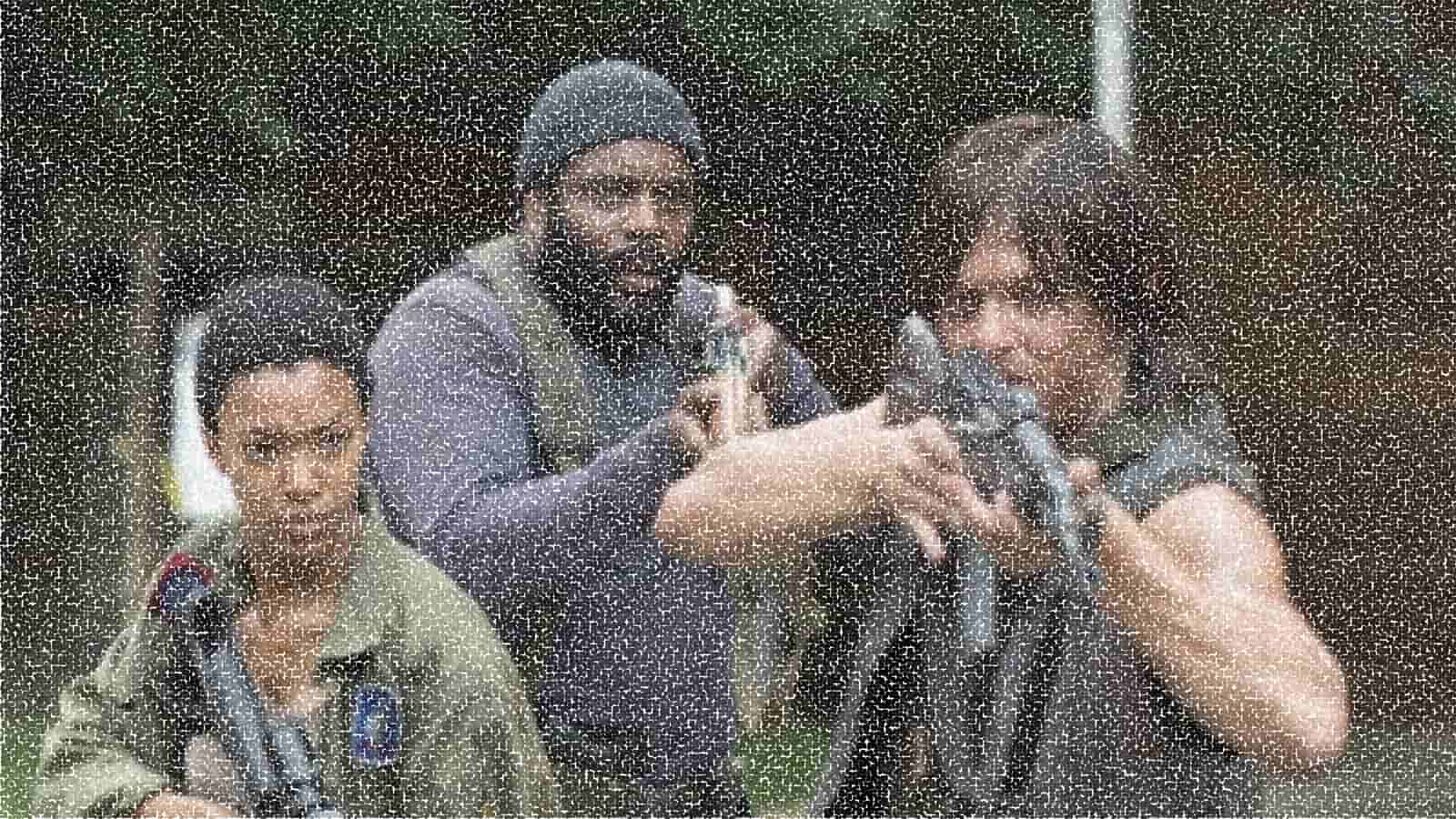
Post-apocalypse settings vary widely, but the matter of who characters trust is always important.
This appeared originally as a YouTube video. In an effort to be evenhanded, I’m providing the transcript here, so you can either read the post below or watch it in video form.
This is a follow-up to Post-Apocalypse Verisimilitude, which is about framing out a setting that would give rise to interesting conflicts. This one is about motivations and how the GM and players can use them to put the setting into motion. Let’s dig in.
Survival Isn’t Enough
People who’ve been through horrific real-life situations sometimes talk about the need to clearly see what’s going on around you when you’re in a time of peril, and to act accordingly. In dangerous times, inability to see things as they are—the indulgence of fantasies that everything will work back to normal any day now—that can get you killed.
They also talk about the seemingly contradictory need to have something hopeful to hold on to, no matter how small. Something that reminds you of your humanity and your sense of self. Maybe it’s playing the harmonica, or carving wooden figures, or rattling off darkly humorous poems.
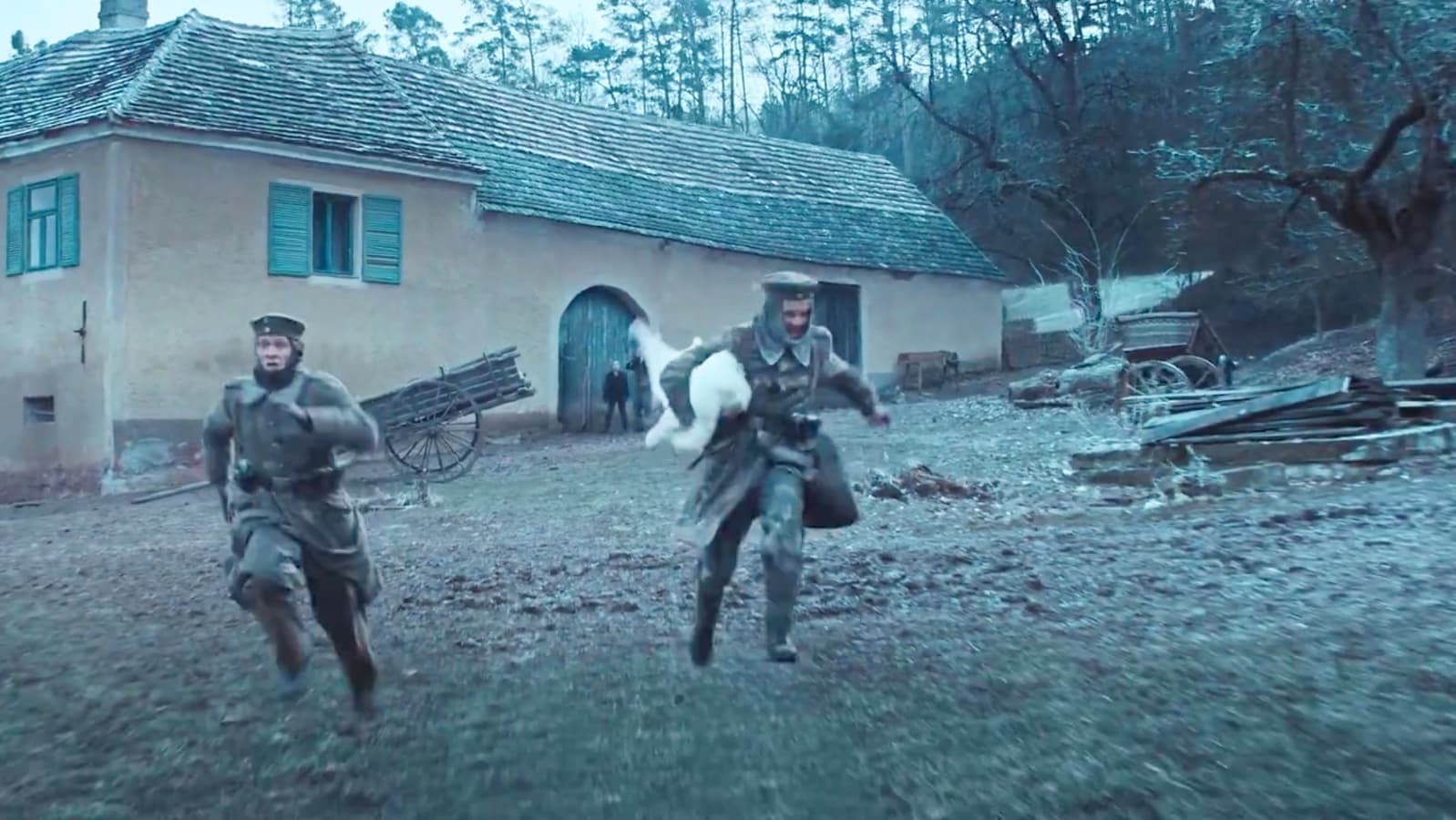
This can lead to behavior that might not make sense to anyone else. For example, the goose-thieving in All Quiet on the Western Front wasn’t about getting enough protein. It was about lifting up friends, about living free for even just a moment. Cabie drives people around the dangerous streets of Manhattan in Escape From New York because knowing who is going where is valuable information–—but also because he wants to be useful.
This applies to NPCs as well as player characters. Anyone who has survived for long in the pressure cooker of a post-apocalypse environment isn’t just good at avoiding danger. They’re good at dealing with the psychological pressure, even if that results in actions that don’t always look logical.
Trust Takes Center Stage
Civilization is a collective endeavor, built on layers of fairly abstracted trust: trust in institutions, trust in systems of governance, trust in each other as a collective. An apocalypse strips out all the abstraction. There are no more institutions left. The systems have all failed.
Why does paper money no longer matter? Because there’s no government left to guarantee its worth. So who can be trusted is a matter of utmost importance when survival is on the line, and all the old abstracted forms of trust are gone.
This matters whether your campaign is ultra gritty or full gonzo. Survivors of any apocalyptic event would band together rapidly. We’re primates, social creatures, and we find comfort and safety in groups. Humans get more done and do better in groups.
Within these groups, deadly conflict is a waste of resources. When there are three effective foragers in your group and one of them brains another one in an argument, the entire group’s odds of long-term survival diminish. Also, if he killed that guy, what’s to say he won’t go into a rage and kill somebody else when nobody is looking? Do we always want to be looking over our shoulder? No. So it’s reasonable to expect that in most survivor communities, there would be strong prohibitions against killing within the group.
What about people outside the group? When is it okay to inflict violence on outsiders? That’s one of the core questions explored in The Walking Dead TV series. In general, I find it hard to believe how readily groups of survivors in that show turn into weird, insular, violent tribes, but it’s a worthwhile question to explore in your campaign.
Trust gets trickier when you’re talking about intergroup trust. If a psychopath holds sway over a community, are all the members of that community at fault for the group’s actions? Can groups in conflict with each other ever come together peacefully? Can people who followed a madman be trusted when the madman is gone?
Motivations matter here, and group motivations are really just collections of individual motivations. Survive long enough, and you’ll start thinking about why you want to survive. Maybe you want to fulfill your role in a sublime test of human worth. Maybe you want to prove something to people who are no longer even alive. Whatever your rationale, your long-term motivations, no matter how vague or precisely defined, highlight that who you trust matters.
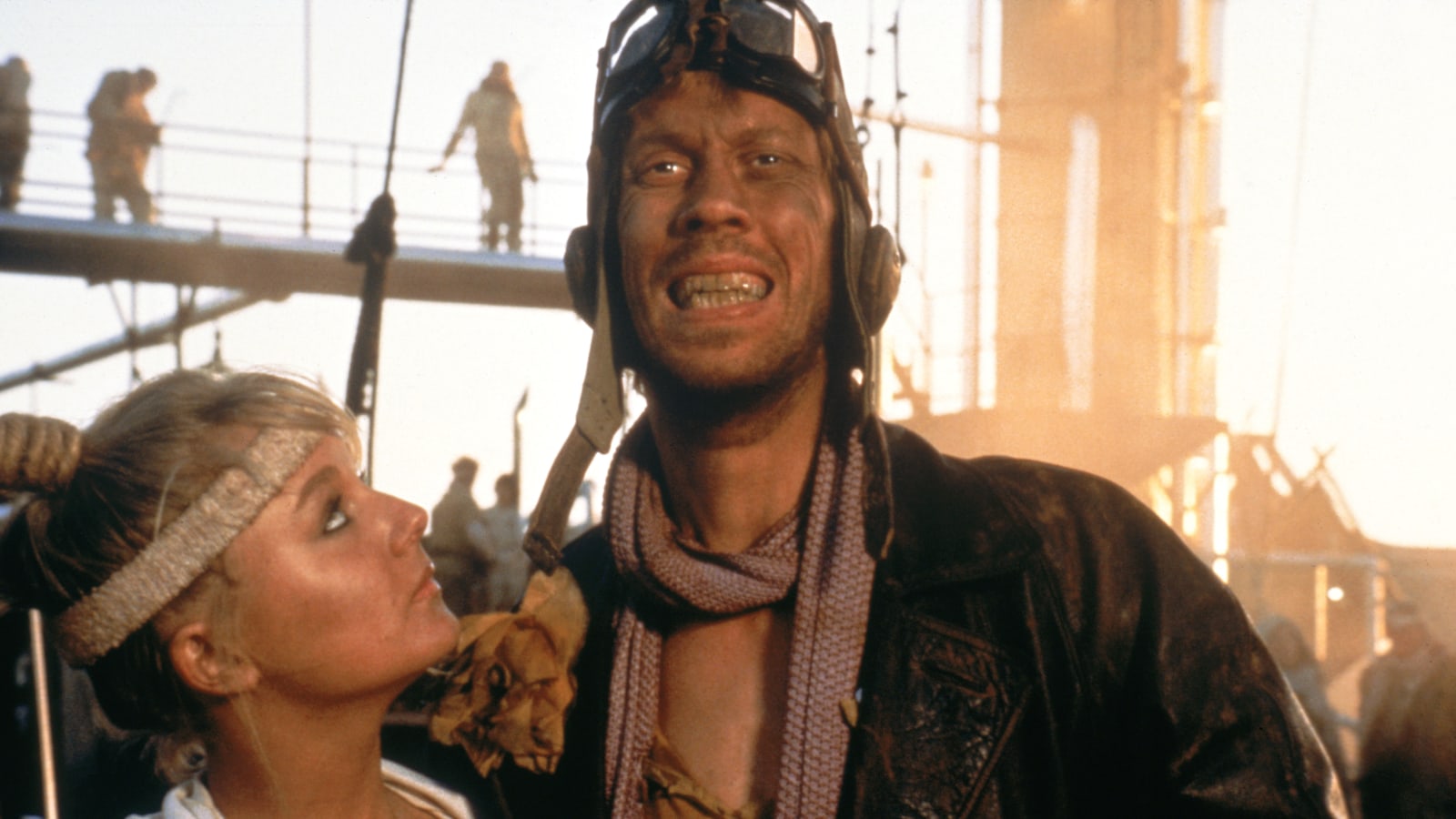
You’ll want to collaborate with people whose motivations are, at the very least, not in opposition to your own. That doesn’t mean they have to be tightly aligned, and some measure of tension between differing motivations can add enormously to a campaign if handled with maturity. But a pacifist who wants to redeem humanity probably won’t work in a group that seeks peace through superior firepower.
This applies to NPC and PC groups equally. People will tend to self-select into groups united by a common worldview. This touches on something else, which is that people come into conflict for a variety of reasons. Sometimes it’s about straightforward scarcity—there’s only a limited supply of fresh water, and two or three or four groups need it.
Conflict is Never Far Away
But often it’s about that double-sided coin of trust. I don’t trust your motivations or the company you keep, and I’ve heard awful things about what you’ve done in the past. Put another way, you could be a threat to either my immediate survival or my long-term goals, or both.
And me not trusting you isn’t just me rejecting you as an ally. In an environment lorded over by the grim demands of scarcity, there’s just not much room for neutrality. If we’re not helping each other, our mutual distress could turn into conflict.
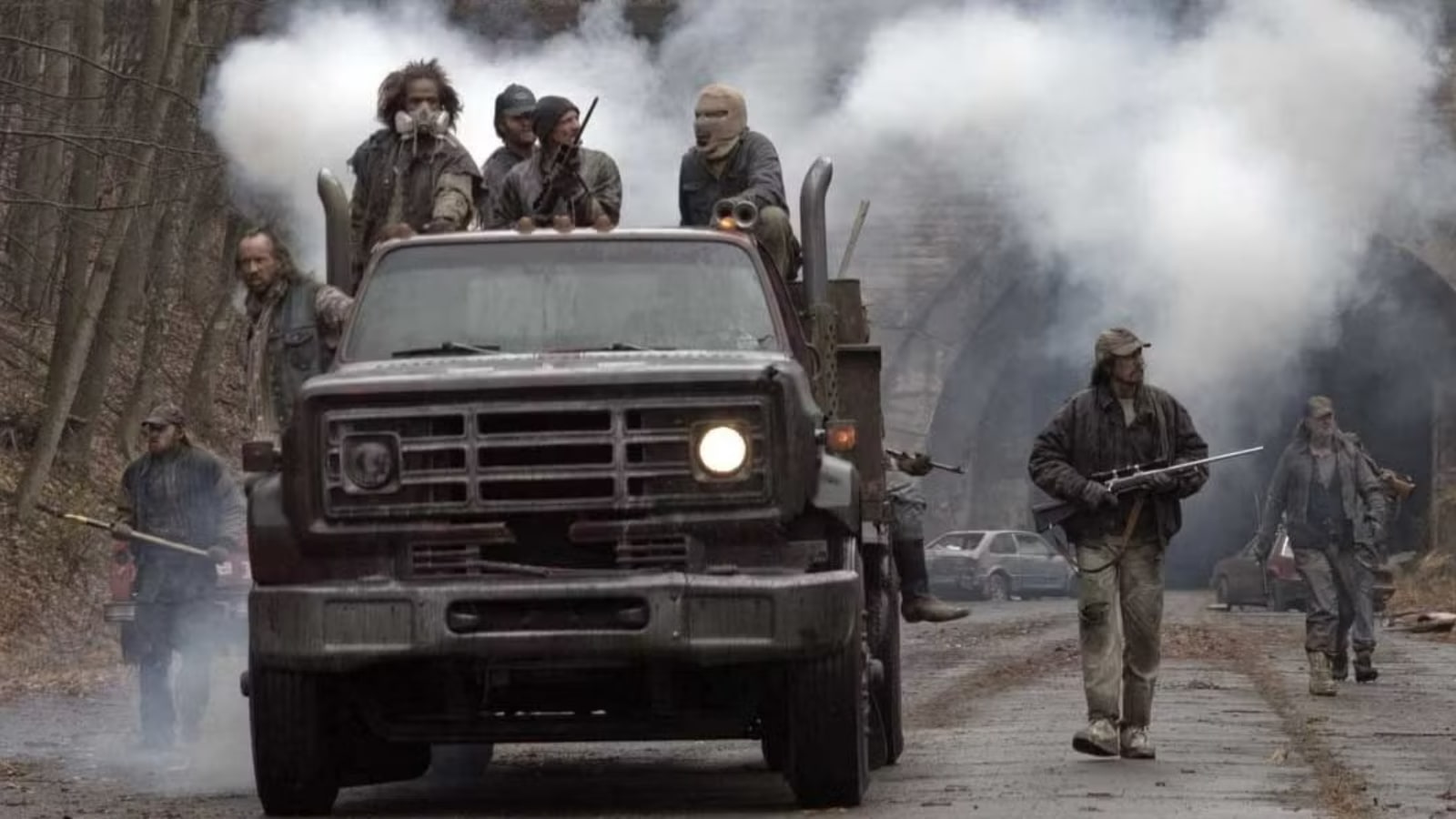
That doesn’t necessarily mean killing. I mentioned earlier that survivors want to, well, survive, and violence does beget violence. But there are other forms of conflict. Working to isolate and ostracize is one way to defeat an enemy. Stealing food supplies, burning crops, siphoning fuel, arson—there are many ways to fight without resorting to bullets. There could even be fist fights in Barter Town, jamming of radio signals, kidnapping—the possibilities are numerous. But of course, the best-laid plans can go awry. And people who have been mistreated have a tendency to escalate.
Conflict between individuals and groups that can’t figure out how to trust each other is the bread and butter of post-apocalypse adventures. But the really good ones go deeper. They put characters into situations where the need to survive grinds against their most deeply held beliefs.
Choices Shouldn’t Be Easy
It’s easy to talk about how morally upright you are when you’re well-fed and living in a nice house. But when you’re scrambling to survive and you and your best friend are both in dire need of food, what do you do?
When you come across an MRE, do you keep your word to protect a defenseless village in return for food once you realize your band could just take all their food? Do you fight the marauders who are threatening your survivor enclave, or do you duck out the back and make a fast exit?
Consider a character who considers herself scrupulously moral. She searched tirelessly to find and destroy the scientist from the university research lab who unleashed the plague that wiped out most of humanity. What does she do when she realizes that the only people who can save her group from a deadly influenza outbreak are the very same scientists? Can she trust them not to double-cross her? Will she guarantee their safety and kill them when they’ve saved her people? If they save her people, will that change her view of them?
What happens when the wily forager steals extra rations from his own group? What should the group’s de facto leader do, given that the thief is his best forager on the one hand, while everybody else is calling for blood on the other?
It’s About Discovery
The players let the GM know what motivates their characters. The GM puts them into difficult dilemmas, and everyone gets the thrill of discovering how characters make painful choices. These are just a few things to think about when you’re putting a post-apocalypse campaign in motion.
If you want to discuss this and other topics in more detail, check out the small but mighty Setting First Discord.
Ω
